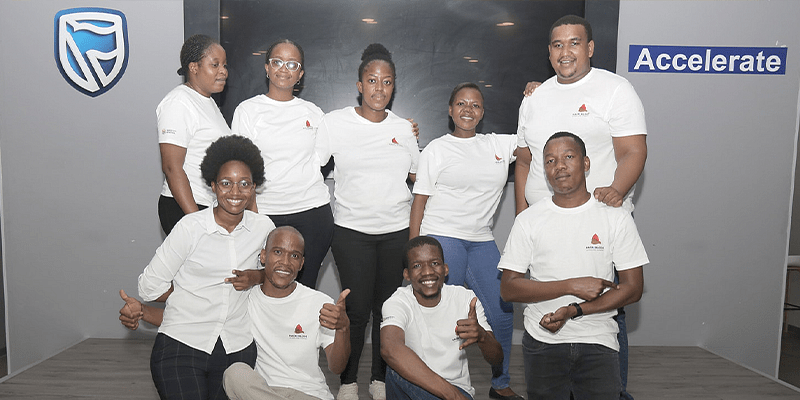Data is becoming one of the most important commercial resources on the planet. And companies are keenly leveraging it to gain a competitive edge. Back in 2008, a survey revealed that only 3 out of 10 most valuable enterprises were taking a data-driven approach to solve their challenges. Today, that number has increased to 7 out of 10 companies. Further, in a 2019 report, Gartner projected that by 2022, 90 percent of corporations will explicitly mention information as a critical enterprise asset and analytics as an essential competency.
Despite these strides, about 68 percent of enterprise data remains unused. In Botswana, and much of Southern Africa, enterprises still rely on manual and paper-based processes, missing on the ability to collect data in a usable format for their data by-products workloads. Not surprisingly, another 85 percent of companies fail to leverage data for digital transformation. These companies miss out on opportunities to create positive customer experiences, improve productivity, and re-invent their business models due to data-related challenges. This also has negative consequences on risk mitigation, operational visibility, and revenue generation. The fundamental challenge that these organisations must overcome is to close the gap between data, knowledge, and action.
Understanding the challenges
While businesses today know that they need to collect data, they often don’t know what to do with it once they have it. The major challenges that enterprises face are making the data collected usable, storing it, maintaining its safety, and ensuring they get the data they need. Over the next two years, managing data will be one of the biggest challenges that businesses will face.
Enterprises also struggle with data skills and qualified data analysts. A new research report by Accenture and Qlik recognised that lack of data literacy has severe effects on an organisation’s productivity and revenue. The report further identified that while most employees understand the importance of data, only a few can truly leverage it. Only 21 percent of employees report being confident in their data literacy skills.
Leveraging data for success
While data analysis was increasingly becoming important in the past few years, the pandemic has accelerated the demand for data management as companies try to cut losses and improve efficiency. Organisations of all sizes are understanding the importance of data for operational efficiency and innovation. The gap between data, knowledge, and action needs to be closed. Enterprises need to optimise their infrastructure investment and maintenance costs. They also need to improve their capacity to translate data into lower costs, managed risk, improved efficiencies, and increased revenue.
Spectrum Analytics Team
To that end, Spectrum Analytics has been providing bespoke solutions that simplify and optimise enterprises’ ability to extract value from their data across different storage and processing environments. We help organisations use data to drive operational improvements and make evidence-based decisions. By leveraging data and emerging technologies to start, accelerate, and sustain their digital transformation, we enable various organisations to not just adopt but also thrive in this ecosystem.
Using NetApp’s leading industry data management tools, we aim to provide simple, secure, and optimised data management solutions. We believe this addresses the fundamental problem all data-driven enterprises have to contend with. Our solutions create opportunities for enterprises to focus on business use cases powered by analytics, automation and cloud. We provide solutions in the areas of application development, process innovation, data analytics, and cybersecurity.
How Spectrum Analytics benefited from NetApp Excellerator
Founded in 2017, Spectrum Analytics is a Botswana-based startup. From a one-man unit to a team of 13 individuals sharing the same purpose and goal, we have consistently made leaps ahead. We have benefited from Botswana Digital Innovation Hub’s innovation support programmes and access to their network. We are an ecosystem-oriented startup that grew from learning, collaboration, and partnerships. We constantly participate in advocacy, entrepreneurship, and innovations forums in the country. Over the years, we have supported developer communities and 21st century skills development in Botswana – through organising meetups, bootcamps, and public lectures.
We are grateful to be part of NetApp Excellerator’s Cohort-9. We have learnt a lot since the programme began. Learning about the problems the participating startups in the programme are solving, has been inspiring for us. The business and technology mentorships from NetApp experts and network have been helpful. We have thoroughly enjoyed our experience to date, and it can only get better going forward – if we keep learning and challenging ourselves.



![Read more about the article [Weekly funding roundup Nov 18-24] Marginal recovery in venture capital inflow](https://blog.digitalsevaa.com/wp-content/uploads/2023/07/Weekly-funding-roundup-1670592545805-300x150.png)





![Read more about the article [Funding alert] Sugar.fit to raise $10M from Cure.fit, Endiya Partners, Tanglin Venture](https://blog.digitalsevaa.com/wp-content/uploads/2021/09/funding-1630500524337-300x150.png)
